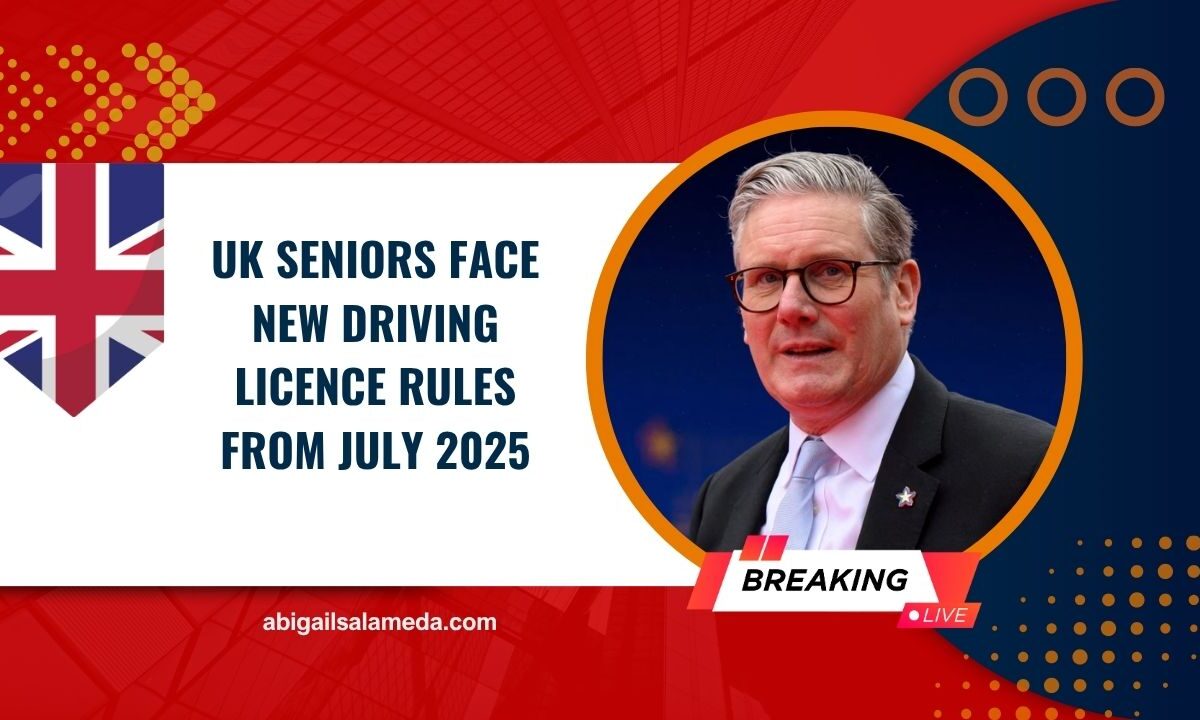Starting July 2025, new UK driving licence rules will take effect for drivers aged 70 and above.
These changes, introduced by the Driver and Vehicle Licensing Agency (DVLA), focus on medical fitness, vision standards, and potentially randomized screenings to ensure road safety as the number of elderly drivers continues to grow.
Why Are These Changes Being Made?
With over 6 million drivers in the UK aged 70 or older, the government is addressing concerns about age-related medical conditions such as dementia, hearing loss, and vision impairment that can affect driving ability.
In 2023 alone, a record 597 centenarians held valid UK driving licences—triple the number from a decade ago.
While many older drivers are safe and experienced, others may face subtle health challenges that can compromise road safety.
What Are the New Rules from July 2025?
The new changes aim to balance independence for senior drivers with the safety of all road users. Here are the expected updates:
| Policy Change | Description |
|---|---|
| Medical Declaration | Drivers may require a GP-certified fitness certificate, replacing self-declaration. |
| Vision and Cognitive Testing | Seniors flagged as high-risk may undergo mandatory eye and cognitive tests. |
| Random DVLA Screening | Random health screenings may be introduced regardless of reported conditions. |
| Licence Validity | Renewal still occurs every three years, but now with additional documentation. |
| Conditional Licences | Restrictions like daytime-only driving may be applied based on medical status. |
How Does This Impact Senior Drivers?
- Not Age-Discriminatory: Drivers won’t be disqualified just because of age.
- Increased Responsibility: Seniors must take greater accountability for their health and vision fitness.
- Documentation Costs: While DVLA renewals remain free, GP or optometrist visits may incur fees.
- Driving with Conditions: Some may receive limited licences based on health evaluations.
Steps Seniors Should Take Now
To avoid last-minute challenges, seniors should proactively prepare:
- Book Eye & GP Check-Ups in advance to avoid renewal delays.
- Track DVLA Updates through official announcements for final rule details.
- Self-Assess Regularly for safe driving—especially regarding eyesight, hearing, and reaction time.
- Seek Family Support for paperwork, transportation, and honest conversations about fitness to drive.
The July 2025 UK driving licence rule changes represent a shift towards proactive safety while still valuing the freedom of senior drivers.
These adjustments are designed not to limit seniors but to help ensure that everyone—elderly drivers included—remains safe on Britain’s roads.
Seniors are encouraged to plan early, maintain their health check-ups, and stay informed about the upcoming requirements to ensure a smooth licence renewal experience.
FAQs
Will I have to retake my driving test at 70?
No. The new rules do not require retaking the driving test, but medical and vision documentation may be needed.
Are the new DVLA requirements mandatory for everyone over 70?
Yes, all seniors aged 70+ will follow the updated renewal process, though random screenings will apply to some, not all.
Will I have to pay for these new health checks?
While licence renewal remains free, any GP or optometrist visits required for fitness documentation may involve a fee.




